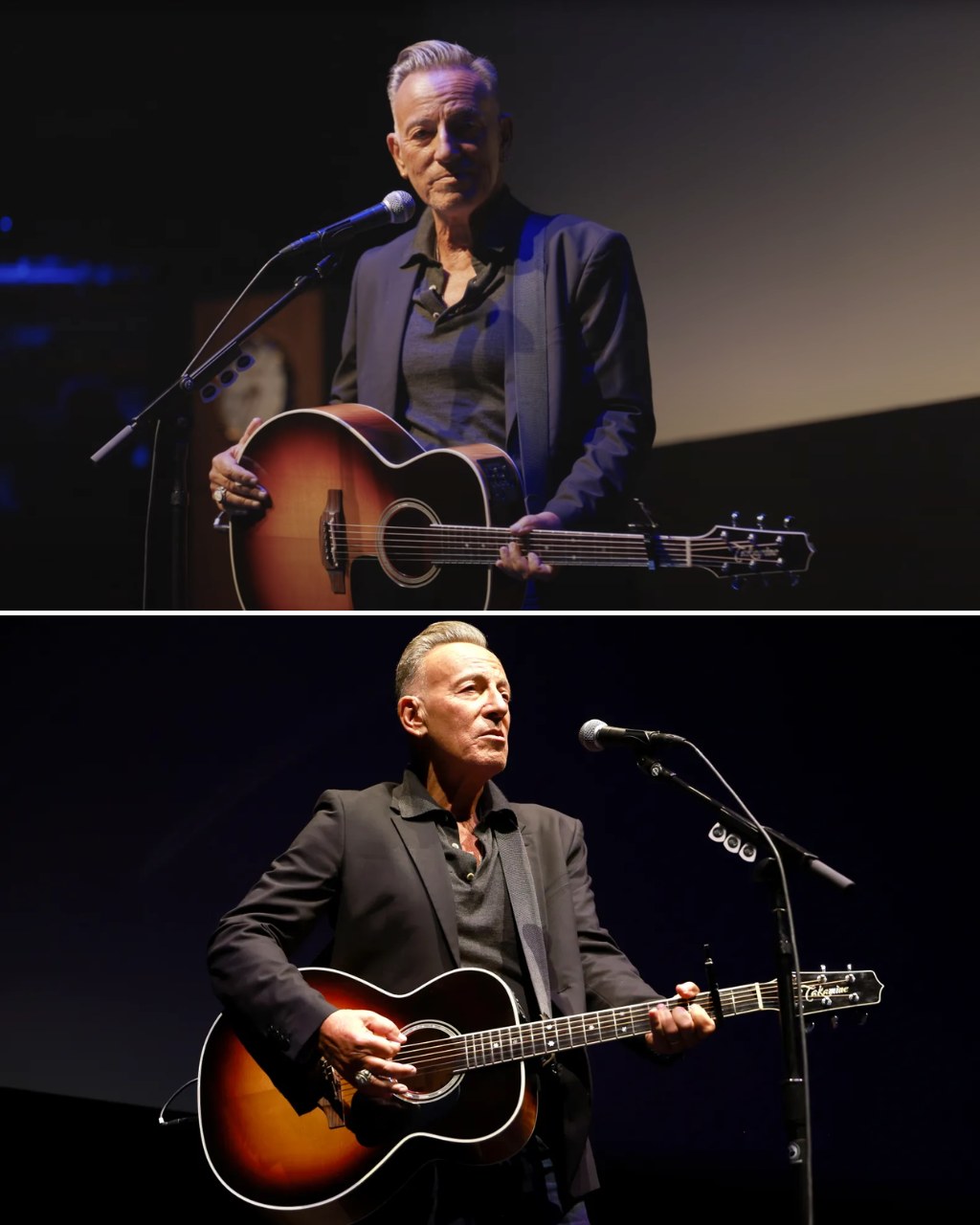
Introduction
Some concerts we remember because of spectacle. Others linger in memory precisely because nothing else was at play but voice and heart. On September 28, Bruce Springsteen turned a film premiere at the New York Film Festival into one of those nights. He appeared unannounced, walked on stage after the credits, and sang Land of Hope and Dreams — no backing band, no stagecraft, just him and his guitar. It was a moment that blurred boundaries: between film and concert, between myth and man. But what makes it special is not just the performance, but the story behind why he did it, and what it reveals about the man behind the legend.
The Context: Deliver Me from Nowhere & the Premiere
Springsteen: Deliver Me from Nowhere is a new biopic directed by Scott Cooper, focusing not on public triumphs, but on a quieter, pivotal moment in Bruce’s life: the making of his 1982 album Nebraska. The film explores themes of creative fights, isolation, and the internal pressures that shaped those haunting acoustic tracks.
At its NYFF debut, the atmosphere was electric not because of glitz, but anticipation. After the film concluded, Bruce himself came onto that stage — a surprise that turned a screening into a pilgrimage. He thanked the cast and crew, remarked with warmth on Jeremy Allen White’s performance, and then picked up his guitar. Then came Land of Hope and Dreams — not a hit spectacle, but a quiet, piercing entry into something real.
A Song, a Moment, a Message
Land of Hope and Dreams is among Springsteen’s signature anthems — recorded live many times, imbued with gospel hope, longing, and redemptive resonance. The decision to sing that particular song, acoustically, after a movie about his inward journeys, feels deliberate: a bridge between his recorded past and his current selves. In that stripped version, every word and pause feels heavier, more luminous.
His speech just before the song also resonated: he spoke of “these particularly dangerous times,” of America’s fractures and ideals. The performance became more than nostalgia — it became testimony. That night, the film’s narrative of Nebraska—a record built from solitude—found its modern echo in that silent stage and single guitar string.
Why This Moment Matters
Bruce has long been known for endurance, for carrying the myths of his home state and the lives of the unfinished into his songs. But rarely do we see him without the band, without the lights, stripped to the bones of his craft. This performance reminded fans and newcomers alike: his voice, his guitar, his self — that’s still where it begins.
Moreover, the night reframed the film. This wasn’t just a movie premiere — it was a live extension of its themes. The art mirrored the life, and the life mirrored the art. In one frame, Bruce moved from being the character to being himself again.
Conclusion
Concerts are meant for many things: entertainment, escape, joy. But some moments are meant to reveal. When Bruce Springsteen returned to stage alone after Deliver Me from Nowhere, he didn’t demand spotlight — he offered presence. He didn’t play to the crowd — he shared a threshold. The image of him there is powerful not because it’s perfect, but because it’s true. And the fuller story — the why behind the chords, the path that led him there — waits in the spaces between notes, in the shadows that held him, and in the echoes that still reach us now.





